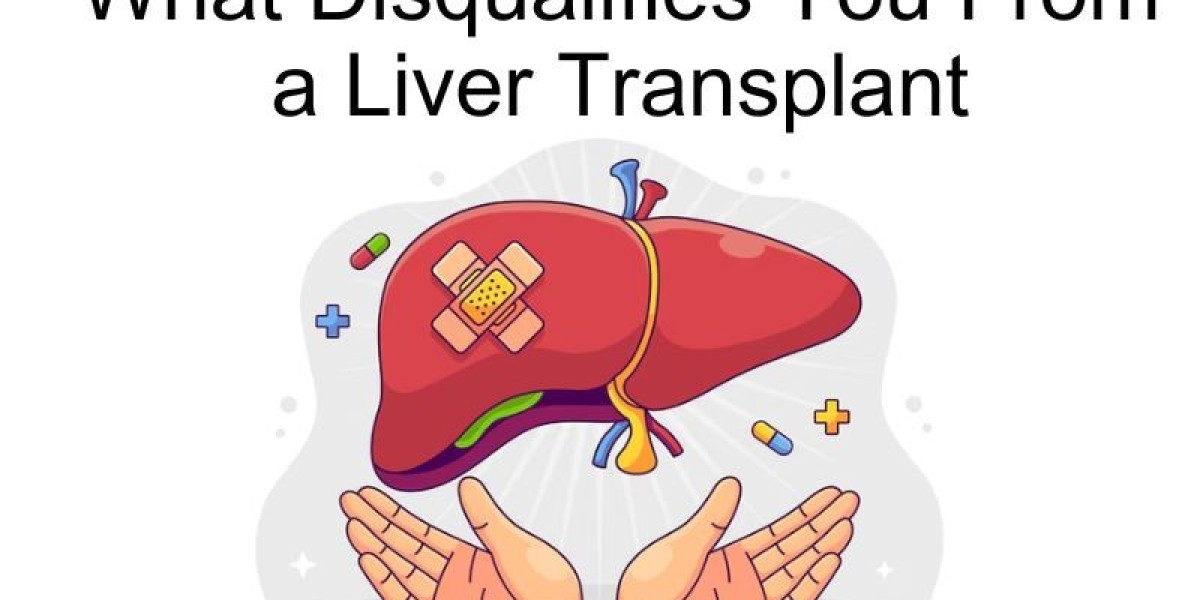A liver transplant is a life-saving procedure for individuals suffering from end-stage liver disease, liver cancer, and other severe liver transplant surgery scar. However, not every patient is deemed eligible for a liver transplant, and several factors can disqualify a person from receiving this procedure. These factors are based on medical, psychological, and practical considerations to ensure that the transplant would have the highest likelihood of success and benefit the patient's overall health.
This article explores the various factors that can disqualify a person from being considered for a liver transplant.
1. Advanced Age
While age alone is not necessarily a strict disqualifier, patients who are extremely elderly may face challenges related to the surgery and recovery process. Age is often a factor considered alongside other health problems. People who are over 70 or 75 years old might be regarded as less likely to benefit from a liver transplant due to reduced physiological reserves and the increased likelihood of other medical conditions that could complicate recovery.
Older patients may face a higher risk of infections, organ rejection, or complications during surgery. Many transplant centers consider the patient’s general health and ability to recover after the surgery, which tends to be more challenging for older adults.
2. Other Severe Health Conditions
Certain pre-existing medical conditions can prevent a person from being eligible for a liver transplant. These include, but are not limited to:
- Cardiovascular Disease: Patients with severe heart disease or uncontrolled high blood pressure may be disqualified from receiving a liver transplant. The risk of complications related to surgery, including heart failure or stroke, is higher in individuals with significant cardiovascular issues.
- Respiratory Disorders: Individuals with chronic pulmonary disease, severe lung conditions like emphysema, or obstructive sleep apnea may have difficulty with anesthesia and recovery after surgery.
- Kidney Failure: If a patient has severe kidney disease or kidney failure, particularly if they require dialysis, it can increase the risk of complications both during and after the transplant. The liver transplant might not be as successful in individuals with multi-organ dysfunction.
- Cancer Metastasis: If a person has cancer that has spread beyond the liver, they may be disqualified from a liver transplant. Transplants are typically not recommended for patients with cancers outside of the liver, as they may not be effective or beneficial.
- Severe Infection: Active infections, especially those that are difficult to treat, can disqualify a person from a transplant. Transplant patients are particularly vulnerable to infections due to immunosuppressive medications required to prevent organ rejection.
3. Active Alcoholism or Drug Abuse
One of the most common disqualifiers for a liver transplant is ongoing substance abuse. Active alcohol use or drug addiction is a major contraindication for liver transplant eligibility. The transplant procedure itself is very demanding on the body, and patients who continue to drink alcohol or use illicit drugs may be less likely to follow post-transplant care protocols, such as adhering to medication regimens and attending follow-up appointments.
Substance abuse can also significantly harm the liver and cause further damage to the transplanted organ. In many transplant centers, patients who have a history of alcohol abuse must demonstrate a period of sobriety (usually six months or more) before they can be considered for a transplant.
4. Non-compliance or Psychological Issues
Liver transplants require a lifelong commitment to medication, lifestyle changes, and ongoing medical monitoring. Non-compliance with medical instructions is a critical factor in determining transplant eligibility. If a patient has a history of not following medical recommendations or adhering to treatments, this can lead to poor outcomes after a liver transplant.
Additionally, psychological conditions such as severe depression, anxiety, or other mental health disorders that impair judgment or decision-making ability may disqualify someone from a liver transplant. These conditions can affect the patient’s ability to manage post-transplant care, follow a strict medication schedule, and make the necessary lifestyle adjustments to ensure the success of the transplant.
A psychological evaluation is typically conducted before a liver transplant to assess the patient’s readiness to handle the significant responsibilities involved in the post-transplant recovery period.
5. End-Stage Cancer Outside the Liver
In some cases, individuals with liver cancer might still qualify for a transplant, particularly if the cancer is confined to the liver and meets certain criteria. However, patients with cancer that has spread to other organs, or with cancer that is considered aggressive or untreatable, may not be suitable candidates for a liver transplant. This is because a transplant may not improve survival rates if the cancer is expected to recur or metastasize elsewhere.
For example, patients with liver cancer are generally required to meet specific criteria (such as the Milan criteria, which limit the size and number of tumors). If these criteria are not met, a liver transplant is typically not performed.
6. Severe Obesity
Obesity can be another disqualifying factor for liver transplant eligibility. Severely obese individuals face higher risks during surgery, including complications related to anesthesia, wound healing, and infection. Excess weight can also contribute to additional liver-related issues, such as non-alcoholic fatty liver disease (NAFLD), which could affect the success of the transplant.
While obesity is not always a strict disqualifier, many transplant centers require patients to reach a certain body mass index (BMI) threshold before they are considered eligible. The requirement varies between transplant centers, but a BMI over 35 or 40 may lead to disqualification unless the patient demonstrates significant weight loss and improvement in their overall health.
7. Poor Prognosis or Short Life Expectancy
Liver transplants are typically reserved for individuals who have a reasonable chance of benefiting from the procedure. If a patient has a very short life expectancy due to a variety of medical factors, they may not be eligible for a transplant. For example, if a person has severe, end-stage liver disease but also has multiple other life-threatening health problems that reduce their chances of survival, they may not be considered a good candidate for a liver transplant.
Transplant centers evaluate not only the severity of liver disease but also the likelihood that the patient will recover and live a meaningful life post-transplant. This evaluation helps to prioritize individuals who have the greatest potential to benefit from the procedure.
8. Lack of Adequate Support System
A strong support system is crucial for individuals undergoing liver transplant surgery time transplant. The recovery process after the procedure is often long and requires significant care, including assistance with medication, appointments, and general well-being. If a patient does not have a reliable support network to help them through this period, they may be disqualified from the transplant list.
Transplant teams assess the patient’s home environment, social support, and family situation to determine whether they can manage the challenges post-surgery.
Conclusion
Liver transplants are life-saving procedures, but not every patient is suitable for the operation. Eligibility is determined by a variety of factors, including the patient’s age, general health, other medical conditions, and the likelihood of recovery. Factors like active substance abuse, severe mental health issues, and poor prognoses also play a role in disqualifying individuals from transplant consideration.
Each transplant center has its own set of guidelines and criteria, but the primary goal is always to ensure that the procedure will benefit the patient and that the transplanted liver has the best chance of success. For those who do not meet the criteria for a liver transplant, alternative treatments or palliative care options may be explored.
Naijamatta is a social networking site,
download Naijamatta from Google play store or visit www.naijamatta.com to register. You can post, comment, do voice and video call, join and open group, go live etc. Join Naijamatta family, the Green app.
Click To Download

